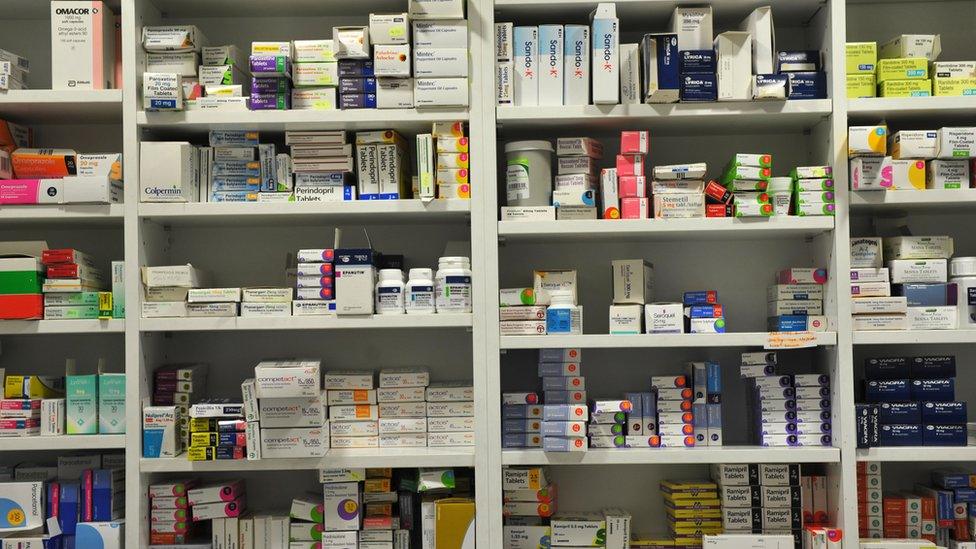Tens of millions of prescription drugs on the black market
- Published

Criminal gangs have smuggled tens of millions of prescription-only drugs out of the UK's protected supply chain, a BBC File on 4 programme has discovered.
They tricked or bribed pharmacists and drug wholesalers to access almost 160 million tablets with a street value of up to £200m over a three-year period.
Misuse of these anxiety and insomnia drugs is a serious public health concern, the medicines regulator says.
The Home Office says it is working with partners to help those addicted.
"Tough enforcement is a fundamental part of the strategy and we are taking coordinated action to tackle illegal drug use alongside other criminal activity," an official added.

Diazepam, Nitrazepam, Temazepam, Zolpidem and Zoplicone:
These drugs should be sold only by those licensed and regulated to do so, within the legitimate supply chain
They can be addictive if taken for a few weeks
Withdrawal symptoms, including anxiety, panic attacks, nausea and palpitations, often last up to six weeks and sometimes longer
Other possible adverse effects from prolonged use are memory loss and confusion, low mood and insomnia
Some patients feel drowsy during the daytime and, especially for older people, this may put them at greater risk of having a fall and injury

In some cases, the criminals used fake documents to pose as genuine dealers. But in others pharmacists were approached directly and offered payment to order and supply the drugs.
An investigation by the UK's Medicines and Healthcare products Regulatory Agency (MHRA) resulted in 41 arrests including five pharmacists, who have been suspended from practice
Twelve wholesale dealer licences have also been handed in or terminated.
An intelligence report seen by the BBC describes an illicit distribution network centred in the north west of England, running through the Potteries, to the Midlands and on to London.
It says there are further investigations linked to organised crime groups in Scotland, Northern Ireland and the Republic of Ireland.
Vast amounts
Just three of the websites the gangs set up to sell the drugs had sales of £55m over a 12-15-month period.
And, the MHRA report says: "One of the internet operations sold 15,000 packs of Zopiclone a day, indicating a daily net profit of £505,950."
The MHRA says it recovered more than two million tablets in one raid alone.
And Police Scotland found 750,000 pills in the back of a van.
Criminal profit
MHRA enforcement head Alastair Jeffrey said: "A typical example would be a wholesaler dealer or a pharmacist ordering vast amounts of these particular types of medicines on behalf of the criminal who would then sell them generally on the internet.
"They have a sales team, a distribution team - this is a huge business and there is a massive amount of criminal profit to be made.
"We have responsibility for regulating the supply chain, and it is our absolute priority to make sure that supply chain is secure."
Mr Jeffrey said some of the people who had bought medicines from the websites "are just general members of the public, holding down good jobs, getting on with their lives who have unfortunately fallen into this type of drug use".
"We are talking about thousands and thousands of people potentially that need some assistance," he added.
Last week, it was announced Public Health England would undertake an independent inquiry into the scale and harms caused by addiction to prescription medicines.

File on 4 - A Deadly Prescription is on BBC Radio 4 on Tuesday 23 January at 20:00 GMT. If you missed it, you can catch up on BBC iPlayer.
Have you got something you want investigating? We want to hear from you. Email us., external